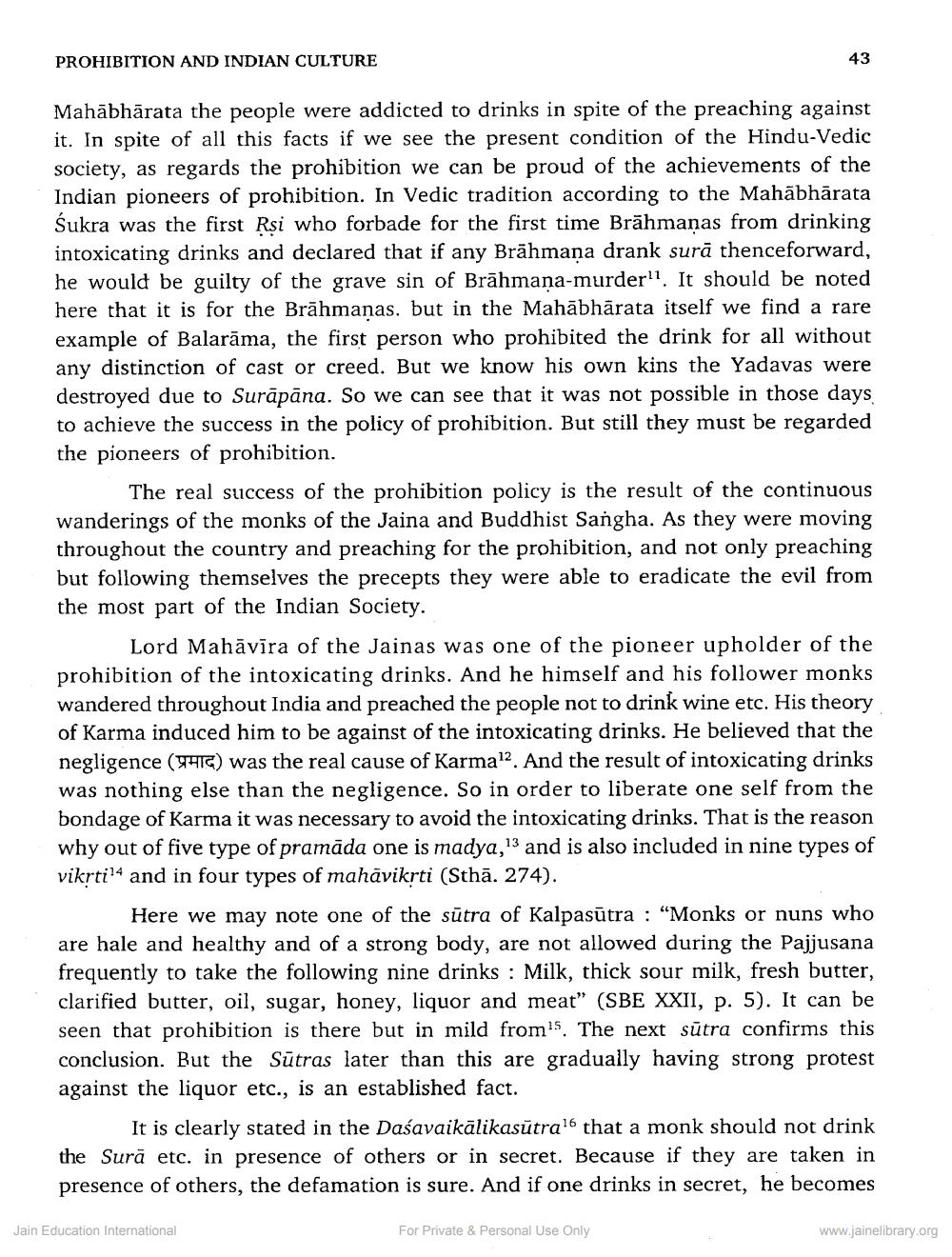________________
PROHIBITION AND INDIAN CULTURE
Mahabharata the people were addicted to drinks in spite of the preaching against it. In spite of all this facts if we see the present condition of the Hindu-Vedic society, as regards the prohibition we can be proud of the achievements of the Indian pioneers of prohibition. In Vedic tradition according to the Mahabharata Śukra was the first Ṛsi who forbade for the first time Brāhmaṇas from drinking intoxicating drinks and declared that if any Brāhmaṇa drank surd thenceforward, he would be guilty of the grave sin of Brähmaṇa-murder. It should be noted here that it is for the Brähmanas. but in the Mahabharata itself we find a rare example of Balarama, the first person who prohibited the drink for all without any distinction of cast or creed. But we know his own kins the Yadavas were destroyed due to Suräpäna. So we can see that it was not possible in those days to achieve the success in the policy of prohibition. But still they must be regarded the pioneers of prohibition.
43
The real success of the prohibition policy is the result of the continuous wanderings of the monks of the Jaina and Buddhist Sangha. As they were moving throughout the country and preaching for the prohibition, and not only preaching but following themselves the precepts they were able to eradicate the evil from the most part of the Indian Society.
Lord Mahavira of the Jainas was one of the pioneer upholder of the prohibition of the intoxicating drinks. And he himself and his follower monks. wandered throughout India and preached the people not to drink wine etc. His theory of Karma induced him to be against of the intoxicating drinks. He believed that the negligence (HI) was the real cause of Karma12. And the result of intoxicating drinks was nothing else than the negligence. So in order to liberate one self from the bondage of Karma it was necessary to avoid the intoxicating drinks. That is the reason why out of five type of pramada one is madya," and is also included in nine types of vikṛti1 and in four types of mahāvikṛti (Sthā. 274).
Here we may note one of the sutra of Kalpasūtra: "Monks or nuns who are hale and healthy and of a strong body, are not allowed during the Pajjusana frequently to take the following nine drinks: Milk, thick sour milk, fresh butter, clarified butter, oil, sugar, honey, liquor and meat" (SBE XXII, p. 5). It can be seen that prohibition is there but in mild from's. The next sutra confirms this conclusion. But the Sutras later than this are gradually having strong protest against the liquor etc., is an established fact.
It is clearly stated in the Daśavaikälikasūtra16 that a monk should not drink the Sura etc. in presence of others or in secret. Because if they are taken in presence of others, the defamation is sure. And if one drinks in secret, he becomes
Jain Education International
For Private & Personal Use Only
www.jainelibrary.org




